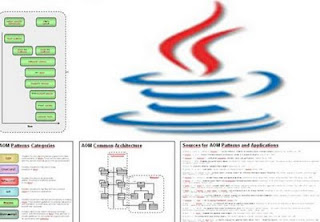By
Jackie Munton
Photo: artdaily.org
The so called 'cult of apple' arguably began its reign as first choice for electronics consumers, with the release of its ever popular '1984' advert. From the adverts indirect attack on IBM's corporate prison style image, more and more people decided to side with the apparent freedom fighting and creative style of Apple. But how free does buying from Apple make you?
Primarily Apple products limits cross functionality through differentiating software and hardware to stop people from linking none Apple devices. Additionally, Apple encases their products in such a way that even removing your battery would incur a void warranty. This forces you to always turn to Apples extremely high prices in order to service every one of your electronic needs. Is this the freedom Apple was referring to?
However, regardless of Apples obvious attempts to force customer retention, they have done an incredible job of making this seem irrelevant to most consumers. Within three days of release, Apple posted sales of over five million of its latest iPhone 5 and these impressive results have not only been seen on their mobile phones.
The Telegraph shows a 14% increase in tablet users from last year with one in four smartphone users using a tablet this year. A large influence on this has been from Apples own tablet, the iPad. Apple have shown over 84 million iPads have been sold with CNN suggesting these figures resulting from a huge 88.3% of all tablet market share owned by Apple. But how long will this dominance last?
Recent years have seen a high level of competition in the tablet market. Apples largest competitors utilise the ever growing popularity for Android and Windows operating system (OS) devices. This has allowed companies such as Samsung to reap the rewards for those who have a dislike for Apples controlling nature, wishing for a more customisable and cost effective experience.
Samsung is not alone in their attempt to pinch Apple's loyal customer base. Amazon has also released their own take on a tablet with the Kindle Fire HD, offering tablet functionality at lower prices. Although this is unusual for an online marketplace to delve into, with the shocking success of the Kindle Paperwhite, and its revolutionising effects on reading in the 21st century, the tablet world seems an attractive focus for the online retailer.
History has shown that tablets have been around for a long time with the first ever patent for an electronic tablet being granted in 1888. But only in the past decade has technology really allowed tablets to shine above traditional personal computers. The masses of features and functionality have allowed tablets to become a strong competitor for the future of personal computing and have seemingly made tablets the primary focus for 2012/2013. Currently, Apples hold on the industry is the strongest, but with ever growing competition from cheaper and more feature packed devices, the duration of their stay at the top of the tablet choice will depend on Apples innovation and first in industry developments.
Photo: artdaily.org
The so called 'cult of apple' arguably began its reign as first choice for electronics consumers, with the release of its ever popular '1984' advert. From the adverts indirect attack on IBM's corporate prison style image, more and more people decided to side with the apparent freedom fighting and creative style of Apple. But how free does buying from Apple make you?
Primarily Apple products limits cross functionality through differentiating software and hardware to stop people from linking none Apple devices. Additionally, Apple encases their products in such a way that even removing your battery would incur a void warranty. This forces you to always turn to Apples extremely high prices in order to service every one of your electronic needs. Is this the freedom Apple was referring to?
However, regardless of Apples obvious attempts to force customer retention, they have done an incredible job of making this seem irrelevant to most consumers. Within three days of release, Apple posted sales of over five million of its latest iPhone 5 and these impressive results have not only been seen on their mobile phones.
The Telegraph shows a 14% increase in tablet users from last year with one in four smartphone users using a tablet this year. A large influence on this has been from Apples own tablet, the iPad. Apple have shown over 84 million iPads have been sold with CNN suggesting these figures resulting from a huge 88.3% of all tablet market share owned by Apple. But how long will this dominance last?
Recent years have seen a high level of competition in the tablet market. Apples largest competitors utilise the ever growing popularity for Android and Windows operating system (OS) devices. This has allowed companies such as Samsung to reap the rewards for those who have a dislike for Apples controlling nature, wishing for a more customisable and cost effective experience.
Samsung is not alone in their attempt to pinch Apple's loyal customer base. Amazon has also released their own take on a tablet with the Kindle Fire HD, offering tablet functionality at lower prices. Although this is unusual for an online marketplace to delve into, with the shocking success of the Kindle Paperwhite, and its revolutionising effects on reading in the 21st century, the tablet world seems an attractive focus for the online retailer.
History has shown that tablets have been around for a long time with the first ever patent for an electronic tablet being granted in 1888. But only in the past decade has technology really allowed tablets to shine above traditional personal computers. The masses of features and functionality have allowed tablets to become a strong competitor for the future of personal computing and have seemingly made tablets the primary focus for 2012/2013. Currently, Apples hold on the industry is the strongest, but with ever growing competition from cheaper and more feature packed devices, the duration of their stay at the top of the tablet choice will depend on Apples innovation and first in industry developments.
Jackie Munton has been writing articles for a long time and many
people consider her to be an expert in this industry. With her latest
article, however, she required the help of UK SEO agency, Williams Commerce because she knew they could enhance her article.
Article Source:
http://EzineArticles.com/?expert=Jackie_MuntonArticle Source: http://EzineArticles.com/7428869









.jpg)










